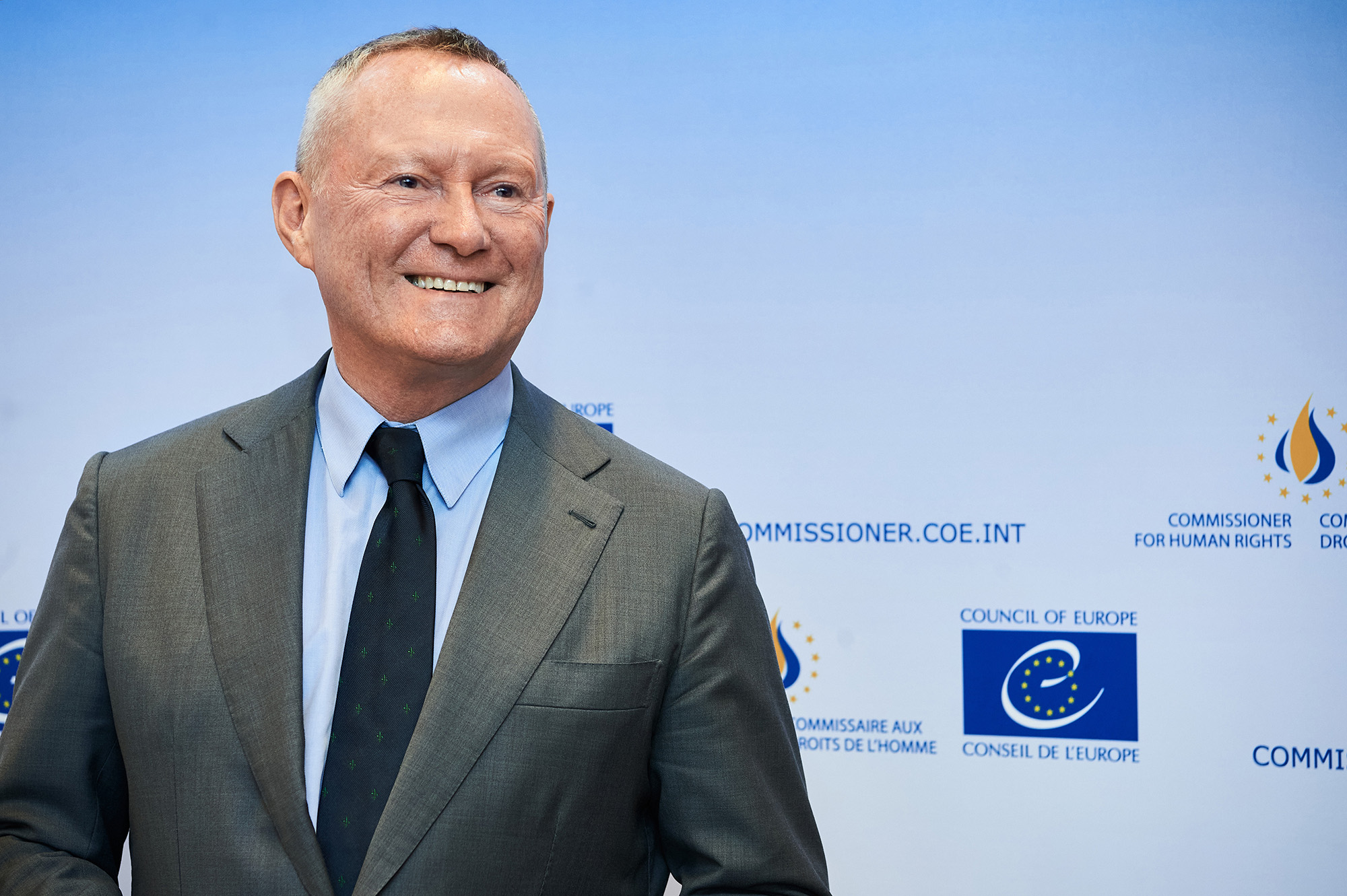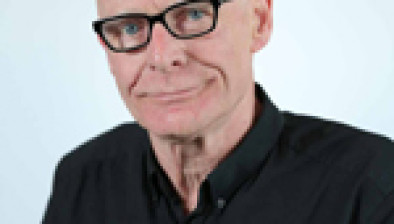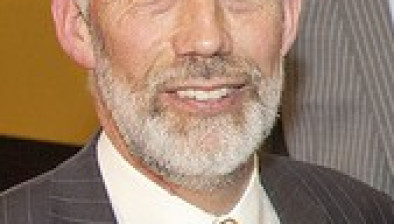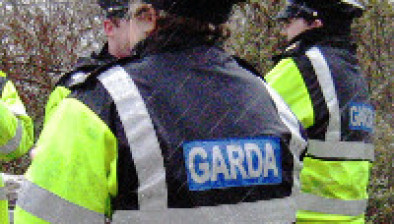Lawyer of the Month: Michael O’Flaherty

Michael O'Flaherty
The adoption this week of the UK’s controversial Safety of Rwanda Bill generated ripples (or rather waves) of concern that reached far beyond Britain’s shores. One of those most concerned was Michael O’Flaherty, the Irish human rights lawyer who has just been appointed Council of Europe commissioner for human rights.
This bill, he says, will not only prevent redress for the most serious human rights violations, but — by specifically excluding asylum seekers from access to justice — will also negate the principle of equality before the law.
Significantly, it interferes with judicial independence, compelling judges to align with the government’s stance that Rwanda is a safe destination despite the UK Supreme Court’s finding to the contrary.
It’s just one of a raft of disquietudes over human rights issues that the commissioner will face as he begins his six-year mandate with a pledge to put human rights at the heart of member states’ agendas.
Mr O’Flaherty’s term will inevitably be a busy one, and he’s commendably patient while technical issues on our Zoom call to Strasbourg are resolved. The native of Galway and former priest was elected to the role at the beginning of April, the highest position ever held by an Irish person at the Council of Europe, comprising 46 member states and founded after the Second World War to prevent human rights abuses.
As his appointment was announced, Mr O’Flaherty told The Irish Times: “The role of the commissioner is particularly important at a moment when we don’t just have human rights abuses but we have a rejection of the system… If we reject the human rights system, we reject the only universally agreed roadmap to honour human dignity and that will be a disaster.”
That notion of a roadmap toward recognising human dignity is a recurring motif for Mr O’Flaherty — as is the necessity to bring the many ‘forgotten people’ in from the margins of society. One senses that it’s an agenda he will pursue not just with passion but with thoughtfulness and tenacity.
The passion is clearly there and will characterise Mr O’Flaherty’s mandate which, despite his impressive job qualifications, will not be driven merely by the academic advocacy of human rights.
He has recalled sitting in tears on a veranda in Freetown, Sierra Leone as he listened to the worsening artillery fire in nearby hills “at a moment when the world seemed to have interest in only one conflict: the one far away in Kosovo”.
This selective concern and amnesia regarding human rights tragedies is one that still exasperates him. “Far too few people now are, for instance, talking about the people of Nagorno-Karabakh and the tens of thousands of ethnic Armenians who fled from there after the territory surrendered to Azerbaijan. That was a huge issue and one that isn’t grabbing the headlines the way it still should,” he says.
And amazingly, he adds the children abducted into Russia in the Ukraine conflict and much discussed at the beginning of the war have become, in a sense, more forgotten people.
Sierra Leone is one of the locations where Mr O’Flaherty was instrumental in setting up human rights agencies during 18 years at the United Nations. He has also served as chief commissioner of the Northern Ireland Human Rights Commission and is the outgoing director of the European Union Fundamental Rights Agency.
It’s an eclectic background that included his being ordained a Roman Catholic priest in 1987, a vocation which he left in 1990 to focus on human rights work. He has been a professor at the Universities of Galway and Nottingham, having graduated in law from University College Dublin, in theology and philosophy from the Pontifical Gregorian University in Rome, and in international relations from the University of Amsterdam.
However, human rights were always a visceral inspiration. At the then University College Galway, he says he was encouraged by law lecturers, including the internationally respected Professor Kevin Boyle, who were “captivating, gripping”.
“They ignited a fire for me in human rights and I gained a vocabulary, one that allows us to build that roadmap to decent, fairer societies,” he recalls. “I’ve never lost that belief in the unique power of human rights. It’s driven me ever since and it’s also brought me to some very diverse settings and exposed me to different challenges, all experience I can now bring to this role.”
Mr O’Flaherty understands that human rights concerns are not solely the dilemma of distant conflicts but have manifestations that concern us all daily. He says the protection of the human rights of Roma and Travellers must become a top priority in EU member states — and that includes Ireland.
“The Roma and Travelling community is Europe’s biggest minority and in Council of Europe countries numbers 10 to 12 million people,” he says.
“However, the indicators of their wellbeing are dreadful. An adult man in the Roma community will typically live 10 years less than his non-Roma equivalent. Their levels of education are shocking and the housing conditions they endure can be deplorable.”
He points to the challenges of a Roma child sent home from school during the Covid-19 crisis and told to begin distance learning: “That child had to go home, maybe to a caravan, and was lucky even to have electricity in many places, let alone an internet connection — the idea that they could learn online is a joke.”
Ireland isn’t spared his censure when it comes to the casual racism that makes Roma and Travellers the target of antigypsyism. Other communities also suffer; Ireland, he says, doesn’t do well in studies concerning racism.
“It’s seen as being one of the more worrying countries in the EU, at least in terms of the patterns of discrimination and race-based harassment in the treatment of Roma and Travellers and people of sub-Saharan African origin — look how repeatedly over time and through history we exclude people and push them to the margins,” he notes.
One of the obvious resolutions is a simple one — the provision of decent, affordable accommodation. He xplains: “For most of us life runs as a matter of course and that’s because we can go home, get a night’s sleep and we’re safe. That means we can go to work or school and can enjoy a family life. We take all that that for granted.
“I’ll be looking at this issue as a priority in my first year in this job: addressing the issue of homelessness, with the aim of nobody having to live on the streets and nobody having to live in unacceptable conditions.”
Mr O’Flaherty says he hasn’t seen human rights in a worse situation in 30 years — and the ideals are increasingly and consciously being rejected by some leaders. Since the Council of Europe was founded, he thinks human rights have ceased to be at the beating heart of society.
“Human rights mattered enormously to the post-Second World War generation, who saw them as essential so that we would never again go through the horrors they lived through.
“Now, most of those people have gone and we’ve not invested enough in human rights education in our schools. How can we then expect people to be thrilled and passionate about human rights if they haven’t been properly exposed to the concept at that stage?”
Is the future cheerless then or is there room for optimism? Mr O’Flaherty reflects: “I prefer not to use the word optimism but prefer ‘hope’. I have a duty to be hopeful — I must believe we can build a better world, a better society, and while we tend to focus — quite rightly — on what’s broken and what’s going wrong, let’s look at what’s been fixed and is working.
“Take our own country, Ireland, and at how it’s been transformed for the better through judgments of the European Court of Human Rights. We’re having a free conversation now and we’re not subject to any censorship or control. And look at the strides made in the LGBT+ community. That’s a concrete example of how we can do a much better job.”
Ireland itself has come a long way: “There’s been a complete transformation in Irish legal practice and training from when I was young, and Galway was unique in providing human rights law courses.
“Today, we have some of the best known and respected academic human rights centres in Europe. Across the country institutions are producing notable numbers of LLM graduates in human rights and you will meet Irish human rights graduates everywhere — in the UN, the Council of Europe, the EU and in civil society where they’re playing a really important role.”
It’s a revolution Mr O’Flaherty has championed during his 64 years — and he’ll be actively aiming to raise the bar even higher during his six years as commissioner for human rights at the Council of Europe.











